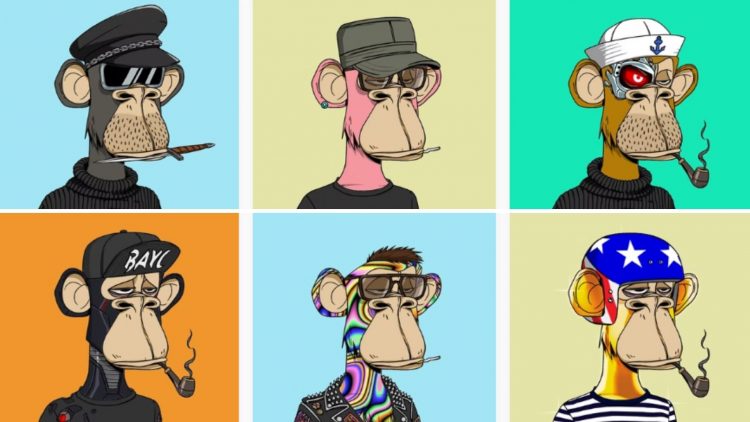The troubles at crypto hedge funds and lenders were a center of attention in June, but business in the non-fungible token (NFT) market also got hit, with monthly sales dipping below US$1 billion for the first time in 12 months, according to NFT data aggregators CryptoSlam.
For context, June last year was the same month that Axie Infinity exploded in popularity, putting NFTs and play-to-earn gaming on the map in the process.
Plummeting crypto prices share some of the blame for the poor NFT sales, but unique monthly buyers in June also fell almost 50% from a high of more than 1 million in January and now stand at less than 600,000 for the first time since July 2021.
In another telling sign, the floor price for a Bored Ape Yacht Club — one of the biggest NFT collections — fell below US$100,000 for the first time in over a year in mid-June to a low of US$86,277. That’s almost an 80% plunge from a high of more than US$400,000 in late May.
“The NFT market has not been immune to the crypto market (and business) turbulence and when coupled with [traditional finance] downturn — in particular the tech stocks crash — it is a perfect storm for loss of confidence,” Jonathon Miller, Australian managing director of crypto exchange Kraken, told Forkast in shared written commentary.
Otherwise known as the “crypto winter,” Bitcoin and the total crypto market cap have fallen roughly 60% since the start of the year and over 50% since the collapse of algorithmic stablecoin project Terra in early May.
The 70% drop this year in the price of Ether, the world’s second-largest cryptocurrency, also influenced NFT trading, as it’s the native token of Ethereum, the most popular blockchain for hosting NFTs. Ether prices traded around US$1,055 on Monday in Asia.
However, after a volatile few weeks, crypto prices held relatively steady over the weekend, with all major coins fluctuating no more than 1% in the 24 hours through Monday afternoon in Asia.
Bitcoin held steady around US$19,300 over the weekend after dropping below US$19,000 for the first time since December 2020 on Friday to change hands at US$19,133 at press time. Amid this NFT market downturn, Kraken is set to join the likes of Binance and Coinbase by opening the waitlist for its own NFT marketplace set for full release in the next few months.
The middle of a crypto winter may seem an inopportune time to launch such a product, but Miller said the NFT market remains just as big an opportunity as crypto was 10 years ago, despite the recent shocks to the blockchain industry as a whole.
“The seeming collapse of closed book lending businesses may be viewed in the long run as a reminder that open transparent infrastructure is ultimately the foundation upon which a new wave of digital financial tools will be built,” Miller said.
“The projects and businesses that stay as true to this as possible are the ones that can weather the storm,” he said.
Another way NFT marketplaces or exchanges can stand out from the crowd is by specializing and offering unique services, for instance by focusing on sports-based NFTs, according to Anndy Lian, Chief Digital Advisor, Mongolian Productivity Organization, and a blockchain author.
In an interview with Forkast, Lian, who also has a background in NFTs, added that the current gloom in the industry would mean both crypto and NFTs would likely trade sideways for the remainder of the quarter, before a wave of renewed interest will hit in Q4, driven by new blood entering the industry.
“I think the NFT market could recover faster than the crypto original market,” said Lian, highlighting partnership deals between Binance and Portuguese soccer player Cristiano Ronaldo as a sign of what’s to come.
“All these moves, which cost perhaps hundreds of millions, are telling us that this will be a big strategy,” he added. “We cannot just depend on what you see in crypto native; you need to bring in new blood.”
Source by forkast.news






























